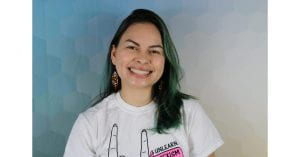“Pop” Goes my Bubble
Has anybody heard of the town of Corning, California? Of course not. Because Corning only rings a bell if you are deeply involved in the olive industry (which has bragging rights of being the U.S.’ 2nd largest producer) or if you are travelling off of I-5 and in desperate need of a bathroom break.
But somehow my parents found this small town of 7,500 to be perfect for their new business venture: apartment landlords. And in the summer of my freshman year, we decided that we would focus on the business and not travel to meet our family overseas, a regular, annual venture now put on hold.
And so, my summer was spent in the small town America of retired white people and Hispanic farm workers. I mostly helped with book keeping and on one particular weekend, I filled in for my mom’ position by collecting rent. It was a great way to meet all of the residents and practice forging my mom’ signature over and over again on our yellow receipt papers. One of the residents, John, wobbled over to pay in cash. He wore worn, black cap that flashed “Vietnam Veteran” in bright yellow letters.
He slowly asked me, “So, what age are you pretty lady?” I replied back with a bashful, “Oh, I’m 16 years old, still in high school.” “Oh really? Well, you about 18 years old and once that happens, a sweet man is gonna come and marry you and well, you live on a farm and all that.”
I was mortified. His entire statement sounded like nails on a chalkboard, like accidentally stepping on a small dog, like the awful ringing that the pin pads make when they reject your card because you didn’t insert the chip correctly. “Oh, I’m actually going to college,” I said in a petty, faint voice. “Oh? You’re one of those girls. Well good luck to ya.” And John took my receipt from my limp hands.
Married?! A farm?! How dare he think I’d fit such a small, sexist model! I was infuriated; I ran outside to text my boyfriend at the time of what had just happened. Coming from Texas, he simply joked about it by sending back a bunch of farm animal emojis. But I was enraged and I wanted that anger to be reciprocated.
I eventually brushed aside the anger after a few days, simply dismissing that John was old, stupid, and backwards. But his statement never stopped bothering me.
Fast forward to Sophomore year, when I had a critical thinking class that focused on media bias. And I was reminded of old John; why did I act so violently when all he did was state an opinion? I had reacted as if he had physically attacked me or insulted my mom. And don’t get me wrong, I love my mom. I began to internalize my reaction and I realized that John broke my bubble. Not my personal bubble, but the bubble of my reality, of ideas that I’m exposed to. And this entire time, because I grew up in Canada, because my parents were multi-cultural, because I was in an exclusive, after-school science program, and because I had a 4.0 in middle school, (which I’m sure that you can relate) I thought I was completely exposed to everything. In essence, I thought I knew what other people thought.
And so it only took one moment and a critical thinking class to make me realize that I had been living in a bubble of liberal elitism that is constantly circulated in Vancouver and Sacramento. It made me realize that not only I was living within a bubble, but also that this was how the rest of small-town America is like. Lastly, it made me understand how much distance there exists within American life; Corning seems like a totally different place from Sacramento despite only being 2 hours away. And how my reaction of dismissing him for being stupid instead of understanding him is a trend that is currently happening within American culture and politics.
We choose to live in these bubbles. These bubbles are comfortable; there are no conflicting opinions, no cognitive dissonance. But not only do these bubbles limit us, but they are also fragile to outside forces. So we must be prepared for when our bubbles break and challenge what and who they were made by in the first place.

